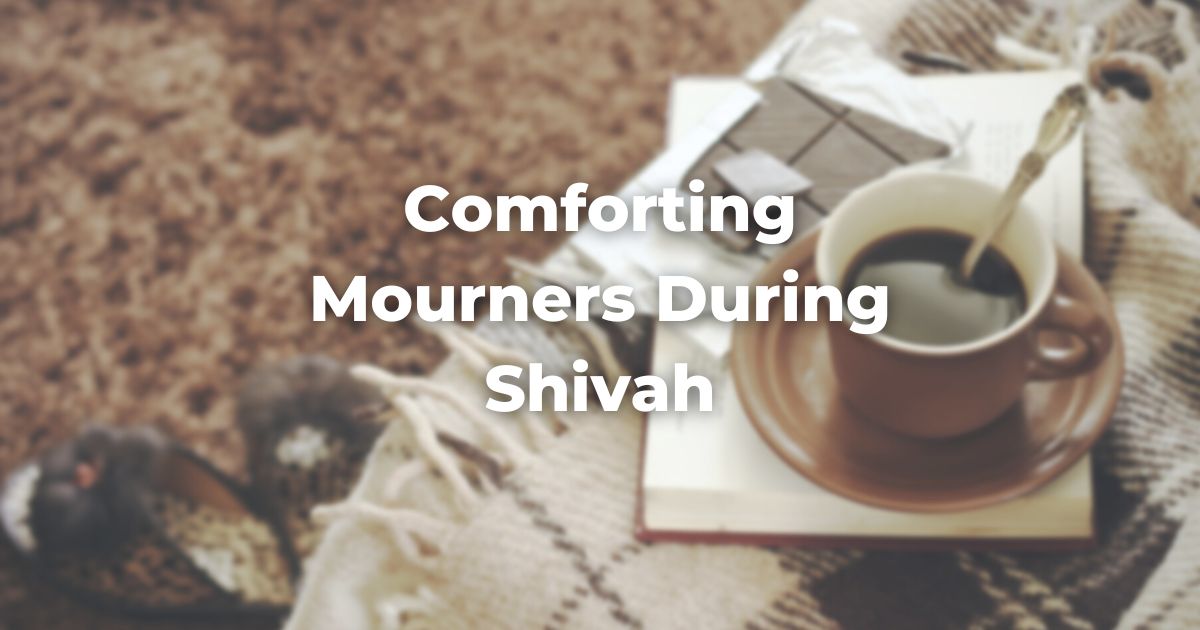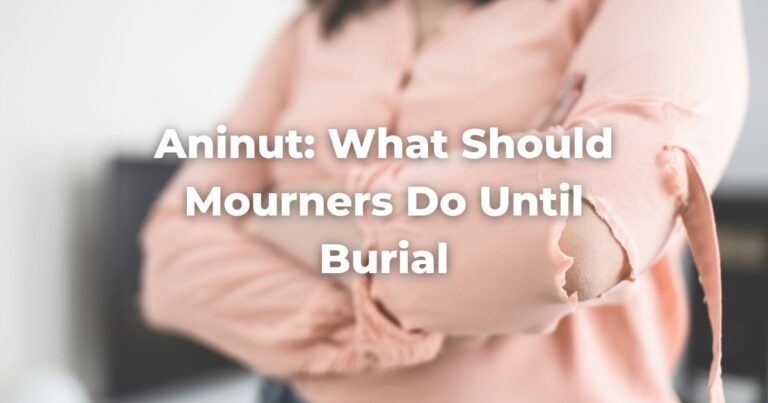It is traditional to comfort mourners with the hope that they find solace among all Jews who have suffered loss and who have subsequently known recovery.
Beyond this, however, what is said is often far less important than the simple presence of others.
For visitors to a house of mourning to express their condolences and sympathy in their own words is perfectly adequate. Something as simple as “I’m so sorry” will often be more moving, and provide more comfort, than an elaborate speech.
Also, there is no need to offer deep wisdom or complicated advice to mourners during the shivah (shiva) week.
Listening is far more important than talking when comforting mourners.
And what conversation there is in the shivah house should be about the deceased, not about the mourners and even less appropriately about those who have come to visit.
Visitors should NOT attempt to keep the mourner’s mind off his or her loss, as focusing on the mourner’s loss is precisely the point of observing a week of intense mourning in the first place.
Jokes, gossip, business talk, and idle chatter do not belong in a shivah house.
The best thing visitors can do in a house of mourning is to share their own memories of the deceased with the mourners, or to listen to the mourners’ recollections.
Sometimes, sitting in silence with someone is all that is needed to provide solace.
Certain common-sense rules should apply when visiting a house of mourning.
Visitors should not come at meal time. Visitors should neither stay late nor too long. Above all, visitors must be sensitive to the physical and emotional exhaustion of the mourners.
It is traditional to bring gifts of food to a house of mourning so that the mourners do not have to look after the preparation of their own meals. Visitors themselves, however, should make a point of not eating or drinking in the shivah home.
Gifts of substantial food will often be far more appreciated than cakes and cookies.
It is also considered appropriate to give gifts of charity to the those in need or to worthy organizations in memory of the deceased.
Mourners continue mourning rituals only for an hour or so on the final day of shivah.
It is then customary to end the mourning week by walking together in the street or around the block.
By exiting the home, mourners formally re-enter the world in which they must now live without the individual who has passed away.
After shiva concludes, it is common to participate in Sheloshim.
Adapted with permission from The Observant Life.
Authors
-

-



The Observant Life: The Wisdom of Conservative Judaism for Contemporary Jews distills a century of thoughtful inquiry into the most profound of all Jewish questions: how to suffuse life with timeless values, how to remain loyal to the covenant that binds the Jewish people and the God of Israel, and how to embrace the law while retaining an abiding sense of fidelity to one’s own moral path in life. Written in a multiplicity of voices inspired by a common vision, the authors of The Observant Life explain what it means in the ultimate sense to live a Jewish life, and to live it honestly, morally, and purposefully. The work is a comprehensive guide to life in the 21st Century. Chapters on Jewish rituals including prayer, holiday, life cycle events and Jewish ethics such as citizenship, slander, taxes, wills, the courts, the work place and so much more.
View all posts





